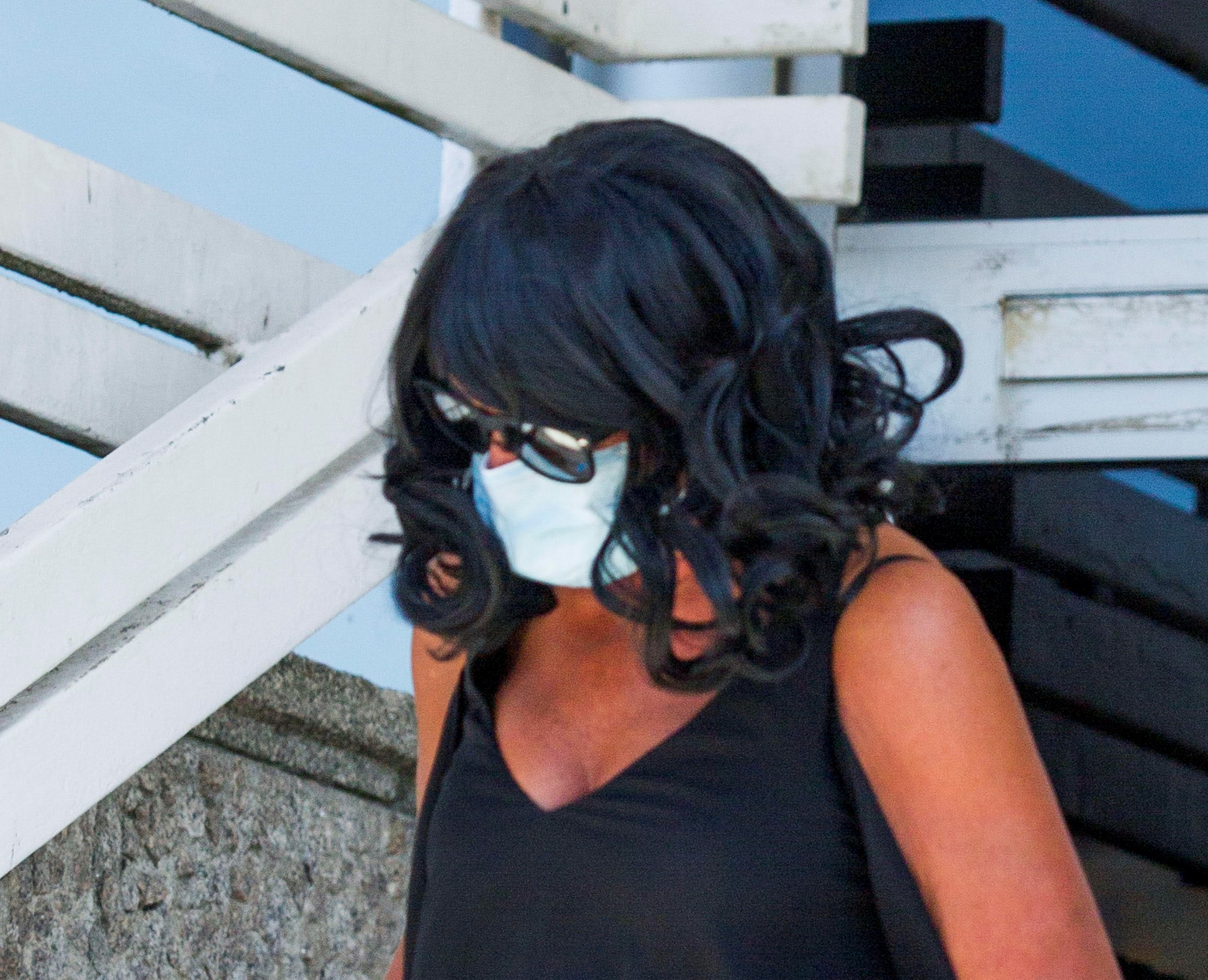The ex-girlfriend of Babes in the Wood double murderer Russell Bishop was jailed for six years at Lewes Crown Court this afternoon (Wednesday 19 May).
Jennie Johnson, also known as Jennifer Robinson, failed to appear in the dock, choosing to remain at Bronzefield Prison, in Surrey.
But the judge, Sir Peter Fraser, known as Mr Justice Fraser, passed sentence as though she were present in court.
He jailed 55-year-old Johnson for six years for perjury and six years for perverting the course of justice, to run concurrently, making six years in total.
Johnson, of Saunders Park View, Brighton, is expected to serve three years – or half her sentence for telling crucial lies in the same courtroom as where her sentence was passed.
This is what the judge said when he jailed Johnson …
Jennifer Johnson, you have refused to leave your cell to attend court from the prison, and you have also refused to attend via a video link. These are voluntary acts on your part. You have, however, been represented by counsel who has made submissions on your behalf. I am therefore going to sentence you in your absence.
You have been convicted by the jury of two different offences. The first offence is doing acts tending and intended to pervert the course of public justice. The second offence is one of perjury. Both of these crimes strike at the heart of the administration of justice and both of them were committed in exceptionally serious circumstances.
The first offence relates to two separate witness statements you made, one dated 2 January 1987 and the other dated 13 October 1987. The perjury relates to evidence you gave at the trial of Russell Bishop, in this very courtroom as long ago as November 1987. The “Sentencing Code” is applicable to this case as you were convicted after 1 December 2020.
The background to the two offences is as follows. They concern dreadful events that took place 35 years ago. On the evening of Thursday 9 October 1986 two nine-year-old girls, Nicola Fellows and Karen Hadaway, disappeared after they had gone out together to play. Their bodies were found at about 4pm the following day, 10 October 1986. Their bodies were hidden together in some undergrowth in an area of Brighton known as Wild Park, arranged as though they were sleeping. They were partially unclothed and both the girls had been sexually assaulted and strangled. This became known as the Babes in the Wood murders.
Your common law partner at the time was someone called Russell Bishop. You already had one small child with him, and were pregnant with your second child at the time of the girls’ disappearance. He became the main suspect in October 1986 in the investigation of the murders of the two children. Bishop was known to the families of both girls and you also knew the girls and their families.
As the police investigation developed in October 1986, a crucial piece of evidence in the case against Bishop was a blue sweatshirt with the word “Pinto” written on it (I shall refer to this as “the Pinto sweatshirt”). This had been found on some wasteland during the search for the girls.
Some evidence linked the Pinto sweatshirt both to the murderer, the clothing the girls had been wearing at the time they disappeared and also potentially to Bishop. Fibres and bloodstaining were present on the Pinto sweatshirt. The location where the Pinto sweatshirt had been found was an obvious route between Wild Park and the flat where both you and Bishop lived.

The police came to your house a number of times and, on 31 October 1986, the morning that Bishop was arrested in connection with the murders, they came to see you with the Pinto sweatshirt. You provided a statement to the police about it. You identified the Pinto sweatshirt as belonging to Bishop, said that you recognised it and also drew attention to some compound on one of the sleeves that had come from him rubbing down one of his cars. You explained this was similar to other staining he had on other clothes, namely some trousers.
The statement you made to the police was made voluntarily and no pressure was brought to bear upon you in making it. The police officers – two detectives and a local police constable who knew you – were investigating two very serious offences and behaved entirely professionally in taking that statement from you. It was dated 31 October 1986, the day they attended, and you signed it.
However, as soon as the day afterwards, you sought to withdraw that statement. You quickly realised the significance of that statement in making a case against Bishop. You decided to lie and deny that you had made such a statement or identified the Pinto sweatshirt as belonging to him.
There was a prolonged campaign over subsequent months, undertaken by the wider Bishop family and in particular his mother Sylvia Bishop, to distance him from damaging evidence in relation to the two murders.
The agreed facts show that Sylvia Bishop and others were involved in attempts to interfere with other witnesses. You were not involved in that wider campaign but you were directly involved in the considerable efforts that were made to minimise or avoid the impact of your truthful statement of 31 October 1986 being used as evidence against him.
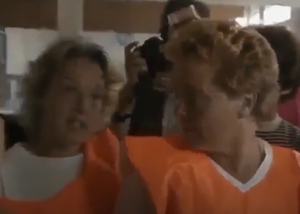
You therefore made two retraction statements, dated 2 January 1987 and 13 October 1987, stating that the statement you had made about the Pinto sweatshirt was not shown to you nor was it read back to you, that you had never seen its contents, and that you were not permitted to read the statement.
You also stated in the second of those statements: “I am able to say with absolute certainty that I have never seen Russell wearing a sweatshirt of any colour with a motif by the name of Pinto on it. Russell has never owned such a sweatshirt. I do not even recall seeing such a sweatshirt, nor being shown any photographs of one.”
You admitted in this trial that those were simply lies and that the contents of your original statement of 31 October 1986 were true.
Bishop was tried for the two murders one year later in November 1987 in Lewes Crown Court – this very building. Before that trial, your two retraction statements were served upon the prosecution by Bishop’s legal team. I consider that must have been done in order to dissuade the prosecution from calling you as a witness.
At the trial of Bishop for those murders, you were called as a prosecution witness. It must have been a finely balanced and difficult decision by the prosecution at that time to call you as a witness. In my judgment, it shows the considerable importance of the evidence of the Pinto sweatshirt in the case against Bishop that the prosecution did choose to call you to give evidence at that trial.
I adopt the description of the prosecution in this trial, who described the Pinto sweatshirt as “crucial evidence” against Bishop in 1987. In those days in the 1980s, there was some limited scientific evidence available from that garment but it was nowhere near as advanced and conclusive as modern DNA evidence. Identification evidence of the kind you had given to the police on 31 October 1986 was very powerful evidence that the Pinto sweatshirt did indeed belong to Bishop.
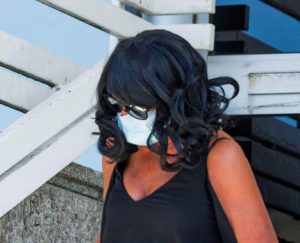
One of the detectives who gave evidence at this trial described when you had identified the Pinto sweatshirt on 31 October 1986 as “a big moment in the murder inquiry, a significant moment”. He said that because of that it had stuck in his memory. The Pinto sweatshirt provided a clear link between the girls, the murderer and Bishop.
At that trial in 1987, you gave evidence over two days. During your evidence, you lied and lied again to the jury and to the court. The prosecution were permitted to treat you as a hostile witness.
You denied that the Pinto sweatshirt belonged to Bishop, you denied that you had told the police otherwise, you denied that you had made a statement to the police at all and you accused the police of forging your initials on corrections made on the handwritten statement.
You said that the police had threatened you and that they had told you that you would not be accused of murder yourself if you said Bishop murdered the girls. You said that the police treated you like animals and also treated you as though you were the murderer. You said their treatment of you was such that you would have signed anything to get rid of them. You said you had just signed the document they presented to you and had no idea what it contained.
These are serious allegations that you made against police officers involved in professionally investigating the murders of two children. None of these allegations were true.
The effect of your evidence at that trial was that Bishop was acquitted of those two murders. I will return to the effect of that upon the families of Nicola and Karen later in these remarks.
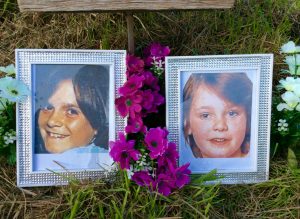
Bishop was released in December 1987 and the News of the World tabloid newspaper paid him £15,000 for his story, as someone wrongly charged with these crimes.
He returned to live with you and the two children you had together. You subsequently had a third child with him.
But there was another dreadful consequence of your perjury and his acquittal in 1987. He was free to offend again – and that is what he did.
On 4 February 1990, a similar offence to that involving the two girls was committed. On this occasion, a seven-year-old girl left her home one afternoon to buy some sweets. She was grabbed, bundled into the boot of a Ford Cortina and taken to an area known as the Devil’s Dyke, another wooded area.
She was stripped, sexually assaulted and strangled. She was left for dead by her assailant in wooded undergrowth. Miraculously, she was not killed. She recovered consciousness and survived.
She provided vital evidence that identified Bishop and his car. He was arrested, charged and stood trial at Lewes Crown Court again.
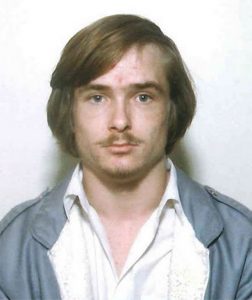
This time he was tried for the attempted murder, kidnap and indecent assault of the seven-year-old girl. He was convicted of these offences on 13 December 1990 and sentenced to life imprisonment.
The families of Nicola and Karen, however, had to wait for over 30 years for Bishop to be convicted of their murders.
It took a change in the law in 2003, allowing people in certain circumstances to be tried twice for serious offences, for there to be any prospect of his being tried again for the murders of Nicola and Karen. Their two families were involved in campaigning for this change in the law.
After many years passed, advances in scientific analysis and DNA investigations into the Pinto sweatshirt led to the prosecution applying to the Court of Appeal for Bishop’s acquittals to be quashed on the basis of new and compelling evidence.
This was done in late 2017 and this allowed Bishop to be tried a second time for those murders. That trial took place at the Central Criminal Court in London, lasted nine weeks and you played no part in it.
Bishop was finally convicted of the murders of Nicola and Karen on 10 December 2018, 31 years to the day since he had been acquitted in 1987. He was sentenced to life imprisonment with a minimum term of 35 years for each murder.
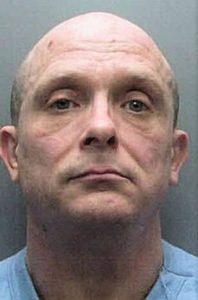
The effect of the wrongful acquittals in 1987 upon the parents and families of the two murdered girls was most profound. Ms Heffron, Nicola’s cousin, delivered her “victim personal statement” to the court on Monday of this week, the day the jury returned their verdicts. She attended the trial. Nicola’s parents Barrie and Susan could not bring themselves to do so. As Ms Heffron explained “they simply could not face the trauma and suffering of reliving everything all over again”. Ms Heffron told the court of the devastation the wrongful acquittals had wrought upon the families in 1987.
Karen’s mother, Michelle Hadaway, attended court daily. She too delivered her “victim personal statement” in person. She explained her feelings that your perjury completely altered the course of Bishop’s trial in 1987 and told how she could not understand how you could do such a thing. She said that her “life has been dominated by a sense of terrible injustice”.
She also told the court of the impact upon her husband, Karen’s father. He died in 1998, twenty years before Bishop was convicted of the murder of his daughter.
Your support for Bishop did not come to an end in 1987 after he was acquitted. You supported him in 1989 when you attended a demonstration – in full knowledge of your own perjury – that was aimed at encouraging the police to find and arrest the murderer.
Video footage was shown at this trial of you after that demonstration, shouting at a senior police officer that they had arrested the wrong man in 1986 and they needed to admit it.
You supported Bishop in 1990 when the police came to arrest him for the attempted murder of the seven-year-old girl. You attacked one of the officers physically with your fists, striking him and shouting that they were always picking on Russell Bishop and were trying to frame him.
You also told the police on that same occasion that the father of one of the murdered girls was the person they should be investigating, a disgraceful and unfounded rumour started in the News of the World which you were happy to repeat.
You also supported Bishop in 1993 in a civil action against the police which he brought against the Chief Constable of Sussex in which he claimed that he had been wrongly accused of the murders of the two girls.
To support that case, you provided yet another witness statement in support of his claim, again maintaining your account that the Pinto sweatshirt did not belong to Bishop. That statement was made on 10 May 1993 and the lack of truth of its contents are remarkable.
You repeated your lies from 1987 including allegations that your initials had been forged by the police. You ended that statement with the following: “Russell is now in prison again for something I know he did not do. I can never get over what the police did to Russell myself and our family it will never be the same again.”
It is difficult to understand how you could have made such a statement in 1993. You were in a new relationship with someone else and Bishop was serving a life sentence. Throughout this whole period you knew you had lied to the court and you knew that the Pinto sweatshirt belonged to Bishop.
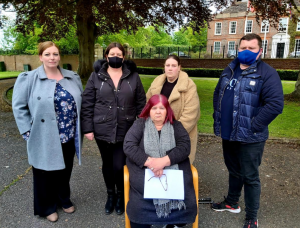
I consider that your offences are of the most serious type. Your false evidence was in respect of crucial evidence in a murder trial, which would in any event be the most serious charge, but this was a double sex murder trial of two children.
Your dishonest support of Bishop lasted a number of years, with positive statements in his favour such as your 1993 statement many years later. You did not finally tell the truth until you were interviewed by police in 2019. The effect of your dishonesty endured for over three decades.
Your defence to both of the charges was one of duress. You said that you were threatened with serious injury or death, which would follow immediately or almost immediately. The only evidence to support such threats was your own evidence. This was rejected by the jury.
Having seen you give evidence over three days, it is difficult to believe anything that you say and you are an accomplished liar.
There was only extremely limited evidence at best of any threats to you of death or serious injury, whether to follow almost immediately (which is required for the legal defence of duress) or at all.
I accept the characterisation that the prosecution put to you, that you were actively working to help Bishop secure an acquittal. This is supported by letters written to you from prison. You were also seen as a member of the Bishop family.

The agreed facts also support the absence of any threats of death or serious injury being made to you. These show that although Sylvia Bishop was attempting to interfere with witnesses, there is no reference to threats of death or serious injury being made to other witnesses.
The only evidence of such threats being made, or pressure being applied, to you is your evidence, which I reject. You wanted Bishop home with you, not in prison.
Your own GP, who started treating you shortly after the trial in 1987, described you as tough and resourceful, a description which I adopt. He knew you for many years and was very well placed to give the court an overall picture of you as a person from the post-trial period onwards and in particular during the three years until Bishop offended again.
I do not accept that there was pressure or coercion upon you in 1987 to act as you did in order to assist Bishop. You were a willing participant in his dishonest defence. Once you realised the central importance of the evidence of the Pinto sweatshirt, you did all you could, in conjunction with his family and his solicitor, to reduce the impact of your statement of 31 October 1986.
In my judgment, the prime motivation for your criminal behaviour was that you simply could not face life without him. You were young with two small children – and Dr Cummings, the expert psychiatrist who gave evidence for the prosecution, said that there were elements of infatuation in your relationship with Bishop.
You did not want to bring your children up alone and unsupported. Whether you had persuaded yourself that he had not murdered the two girls or whether you simply closed your mind to that possibility does not matter.
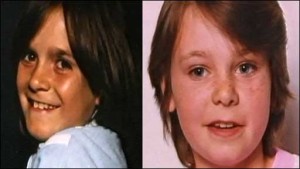
Bishop explained to you how important it was for you to say that the Pinto sweatshirt was not his and he told you that garment was linked to the murderer.
You knew that the sweatshirt was his. Objective logic would suggest that you must have known that he was the murderer – or would have known, were you prepared to consider that possibility.
Although you knew that he would benefit from a large payment were he to be acquitted, financial reward was not your motivation. I accept that none of that money made its way to you personally.
In assessing the seriousness of your offences, I have considered the seriousness of the underlying offence against Bishop, the nature of the deceptive conduct, the period of time over which it was continued, whether or not it cast suspicion on an innocent person and the success of the attempt to pervert the course of justice.
I do not consider that your conduct cast suspicion upon an innocent person, although you were prepared to repeat rumours to the police that could have done, when Bishop was arrested in 1990. But on all the other factors, your conduct is at the most serious end of the scale.
In terms of the degree of planning, you were part of the concerted attempt by his family to secure his acquittal.
The significance of your perjury at the 1987 trial cannot be overstated and it clearly led to others being put in harm’s way.
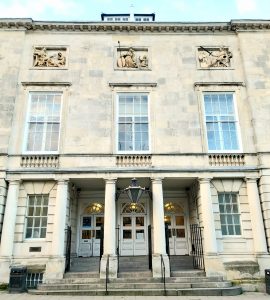
Your perjury led to acquittals on two charges of child sex murder and also led to the defendant being released so he was free to offend again.
This is exactly what he then did, this time attempting to murder a seven-year-old in almost identical circumstances.
Aggravating features are that your offences involved serious allegations of wrongdoing against serving police officers, that your allegations were repeated for years including in another witness statement in civil proceedings in 1993 and that you knew Bishop stood to gain financially from your actions.
The period of time of the offences was almost a year, from the first retraction statement to your perjury in court, and then – in terms of positively maintaining your lies – into 1993.
You then remained silent for decades, including the period leading up to his second trial. You did not admit your lies until your police interview in 2019.
You have some limited previous convictions but I do not weigh them in the balance against you as they are not relevant and pale into insignificance when compared to these offences. Certainly, you do not have previous convictions for offences against the justice system.
Turning to your personal circumstances, you did not have the best start in life, falling pregnant by Bishop when you were only 18 and being required to leave your parents’ house, once your baby was born, as a result of that unplanned pregnancy.
You gave birth to that baby while Bishop was in prison for burglary and your only support at the time was his mother Sylvia. When you left the hospital, you had to go directly to local authority bed and breakfast accommodation due to the attitude of your parents.
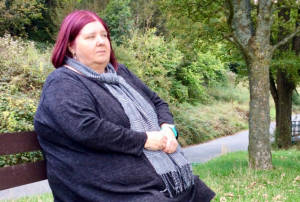
Bishop was violent to you and you were, to use your phrase, young and naïve. One description of your relationship came from PC Edwards, long retired, who said you had a volatile and aggressive relationship with one another.
There was domestic violence in 1985 and 1986 against you from Bishop. I do not minimise the effect of such domestic violence. And he beat you, bruising you and giving you black eyes, including when you were pregnant. You also told the court that he regularly raped you, subjected you to other sexual violence and you said that you were in a controlling and coercive relationship with him.
There is no doubt that he was a murderous paedophile and aspects of your relationship with him would have reflected this. However, on your own evidence in court, the rapes started after he was released from custody having been acquitted of the Babes in the Wood murders.
I do not accept that you were in a controlling and coercive relationship with him prior to your offences. This is for the following reasons. There are numerous accounts in the evidence, including the agreed facts, of you being assertive and independent. You fought very hard to win him back when he left you for a younger girlfriend. You also told the police in 1985 that he was the person responsible for an armed robbery on a post office and that you knew where he had hidden the gun.
I take account of the psychiatric evidence that these are not the acts of someone whose will has been overborne or who is suffering from what is called learned helplessness.
Additionally, your own GP, who knew you for many years from 1988 onwards, described you as “tough and resourceful”. I adopt that description.
But I do not minimise that you were the victim of domestic violence at his hands. You also had two very small children at the time in 1987, with your second child having been born on Boxing Day 1986, the second time you had given birth while Bishop was in custody. You had just turned 22 years of age before the first trial in 1987. I take account of your youth at the time of the offences.
You have also struggled with mental health issues for many years and you suffer from depression and anxiety. I do not believe that you were suffering from these issues at the time of your offences and I do not consider that it reduces your culpability. But you have suffered from these issues and you have made attempts on your own life before.
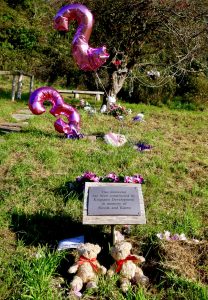
I have considered the contents of both psychiatric reports which were prepared for the trial with considerable care. It is unnecessary to have any further medical reports for the purposes of sentencing.
I have also considered the report of the academic who explained in great detail the long-standing effects of “intimate partner abuse”. I have considered the overarching guide to sentencing offenders with mental disorders, developmental disorders or neurological impairments. I have also considered the impact of any custodial sentence upon you and consider that the authorities in prison will be able to provide suitable treatment if required. Both the psychiatric reports will be provided to them.
You have some credit from being a productive member of society by working for many years as a carer for severely handicapped children. The trial heard positive evidence in your favour from two people in respect of that employment, one of whom was a severely disabled young person who cannot speak.
You have lost your job as a result of this trial. Your children also suffered in the aftermath of Bishop’s acquittal in 1987. However, these are consequences of those serious offences. I do take account of them and also that any sentence of custody may lead to the loss of your home.
In your police interview in 2019 you seemed to be almost relieved to be able to explain and admit what you had done. However, you pleaded not guilty and so you do not have the benefit of the discount that a guilty plea would have provided.
Your refusal to attend today is an example of your refusal to accept responsibility for what you have done although it has not affected the sentence that I am about to pass upon you.
The offence of perverting the course of justice carries a maximum sentence of life imprisonment. Perjury carries a maximum sentence of seven years’ imprisonment. There are no statutory guidelines in force for either offence and therefore I have regard to the sentencing guideline “General guideline: overarching principles”.
I have also considered all the authorities that have been placed before the court while bearing in mind that offences such as these are highly fact-specific.

I consider that both of these offences are of equal and substantial seriousness. They strike at the very heart of the system of justice.
I am guided by the maximum sentence for perjury. Absent any features of personal mitigation, the appropriate sentence for count 2 would be the maximum sentence allowed by law. However, taking into account your personal circumstances and mitigation, there is some reduction to that required.
The seriousness of your offending demands an immediate custodial sentence and a substantial custodial sentence is inevitable. In assessing that sentence, I have taken account of all the circumstances of the offences, their long-standing impact on the administration of justice, their consequences, as well as all the personal mitigation you have had advanced on your behalf by Mr Henley QC.
You are now 55 years of age. I also have in mind totality although, as I am going to impose concurrent sentences on both counts, that has limited impact.
Taking account of all those matters, the end result of the sentencing exercise is as follows. I sentence you to a period of imprisonment on each count of six years, those sentences to run concurrently. You will serve half of that period in custody after which you will be eligible to be released on licence.
Finally, this trial will have placed an extraordinary strain upon the families of Nicola Fellows and Karen Hadaway, as well as upon the victim herself from 1990, who will now be an adult, and her family.
The families of all those involved have conducted themselves with considerable dignity throughout the whole of these proceedings.
It is to be hoped that this trial will be the last chapter in the prolonged tragedy that started as long ago as the evening of 9 October 1986.

